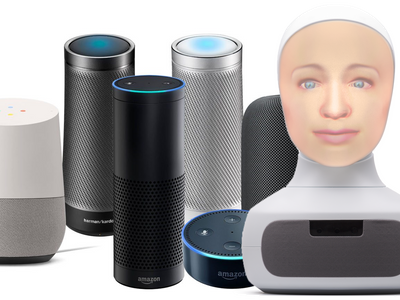5 lectures, 3 labs, 2 project seminars
FDT3151 Conversational Systems 7.5 credits

Conversational systems allow users to interact with machines through spoken or written language. Examples include smart speakers, voice assistants, chatbots, and social robots. This involves the use of technologies such as natural language processing, speech technology, and multi-modal interfaces. The course will give an in-depth understanding of conversational systems, from both a theoretical and practical perspective, through lectures, exercises and a project. Both classical rule-based approaches, as well as more recent deep learning approaches will be covered.
Information per course offering
Information for Autumn 2024 Start 28 Oct 2024 programme students
- Course location
KTH Campus
- Duration
- 28 Oct 2024 - 13 Jan 2025
- Periods
- P2 (7.5 hp)
- Pace of study
50%
- Application code
50985
- Form of study
Normal Daytime
- Language of instruction
English
- Course memo
- Course memo is not published
- Number of places
Places are not limited
- Target group
- No information inserted
- Planned modular schedule
- [object Object]
- Schedule
- Schedule is not published
- Part of programme
- No information inserted
Contact
Gabriel Skantze (skantze@kth.se)
Course syllabus as PDF
Please note: all information from the Course syllabus is available on this page in an accessible format.
Course syllabus FDT3151 (Autumn 2020–)Information for research students about course offerings
Period 2, together with second cycle course DT2151
Content and learning outcomes
Course disposition
Course contents
The course consists of five lectures, three laboratory sessions, and a final project done individually or in groups. The project is presented at a project pitch and during a final seminar. In the laboratory sessions, we will use different platforms for building conversational systems (including graphical tools, social robotics and deep learning).
The lectures will cover the following topics:
- Introduction to conversational systems. Historical perspective. Overview of speech and language technlogy components.
- Theories of conversation. Semantics and pragmatics of dialog. Psycholinguistic perspectives.
- Natural language understanding. Grammar-based and data-driven approaches. Visual language grounding.
- Dialog management. Chat- and task-oriented dialog. Rule-based and neural models. Reinforcement learning.
- Multi-modal conversation, Social signals and Social robotics.
Intended learning outcomes
After the course, the student should be able to:
- Describe different state-of-the-art models for conversational systems, their weaknesses and strengths, and apply a suitable model depending on the application
- Implement a conversational system using rule-based frameworks and deep learning
- Identify research topics related to conversational systems, find relevant litterature, develop a research plan, and execute the research project
Literature and preparations
Specific prerequisites
Doctoral students from EECS
Recommended prerequisites
Some knowledge of Machine learning is recommended (e.g. DD2421, DD2434, EN2202)
Some programming knowledge is required.
Equipment
Literature
Compilation with relevant articles.
Examination and completion
If the course is discontinued, students may request to be examined during the following two academic years.
Grading scale
Examination
- EXA1 - Written examination, 7.5 credits, grading scale: P, F
Based on recommendation from KTH’s coordinator for disabilities, the examiner will decide how to adapt an examination for students with documented disability.
The examiner may apply another examination format when re-examining individual students.
Other requirements for final grade
All lectures, excercises and project seminar attended. Approved project report.
Opportunity to complete the requirements via supplementary examination
Opportunity to raise an approved grade via renewed examination
Examiner
Ethical approach
- All members of a group are responsible for the group's work.
- In any assessment, every student shall honestly disclose any help received and sources used.
- In an oral assessment, every student shall be able to present and answer questions about the entire assignment and solution.